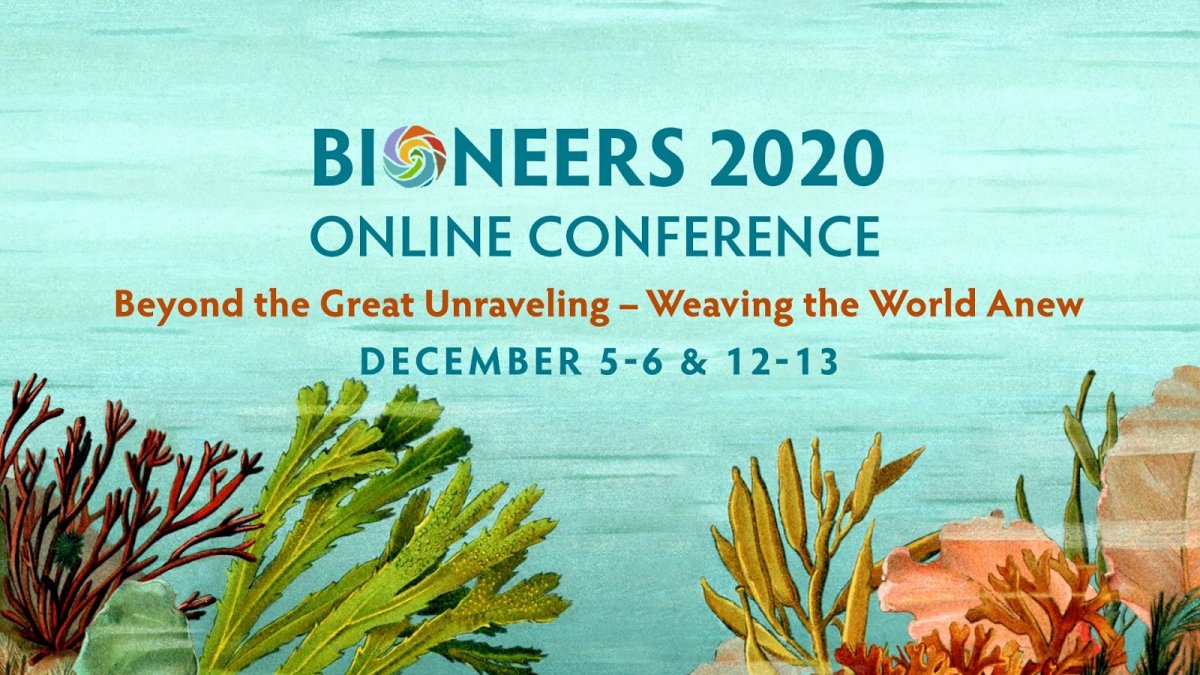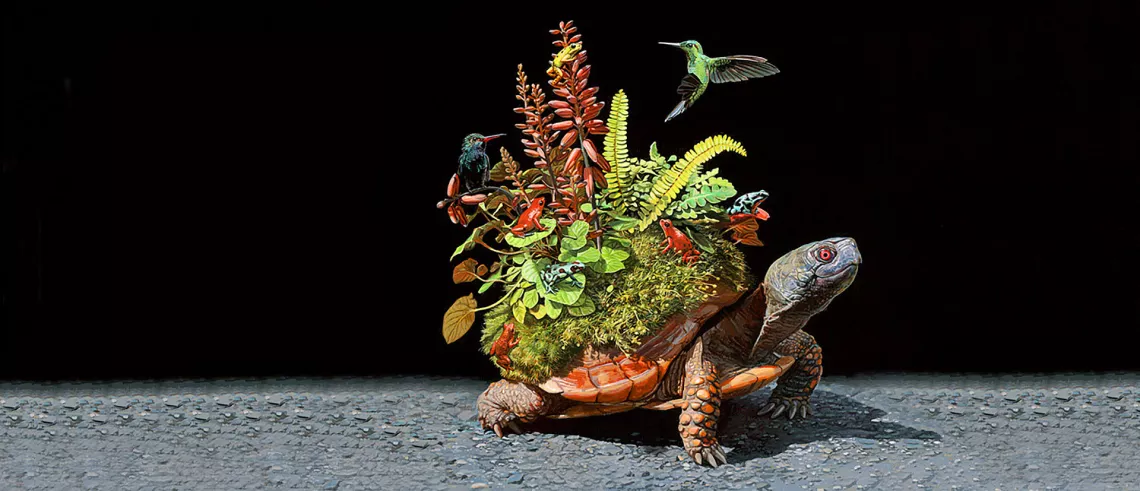December 2, 2020
Last month, I wrote an article about the benefits of regenerative agriculture by highlighting a local urban farm in the heart of Los Angeles.
As November is Native American heritage month, I wanted to add the indigenous knowledge and relationship with nature to the topic of regenerative agriculture and farming.
This led me to the innovative nonprofit organization, Bioneers, based in California and New Mexico, with a mission statement to highlight the breakthrough solutions for restoring people and the planet. Bioneers have a range of dynamic programs and initiatives related to restorative food systems, rights of nature, indigeneity, women's leadership and youth leadership.

I interviewed Arty Mangan, Director of the Bioneers Restorative Food Systems program who focuses on the relationship between agriculture and the climate crisis. Arty provided some inspiring insights into the perspective we need to adopt to solve the climate crisis and how this is rooted in the indigenous traditions and communities.
Arty made the argument that the issues we face as a society all overlap and are not separate issues but instead deeply integrated. He argued that we need to find where these issues come together, such as environmental or societal injustices, and create solutions that fix the climate crisis while making the connection between healthy ecosystems, healthy humans and other living organisms.
I asked Arty to explain the Bioneers tagline ‘revolution from the heart’ and he stated “this is the epiphany that everything is connected, that we are part of the web of life not apart from it”. He explained that this is inspired by the indigenous perspective that all of nature is sacred and that we need to care for it. Indigenous peoples believe in the wisdom of nature and use this to guide them instead of trying to battle or overcome nature which is more representative of modern industrial ideals.
This really highlights the purpose of regenerative agriculture, which is to promote both life and biodiversity by optimizing the conditions of the soil to provide multiple benefits to the people and the planet. This is different to the modern agricultural system, which works against nature and tries to control it, while only valuing profits not sustainability.
According to Adae Romero Briones (Cochiti/Kiowa), Director of Programs: Agriculture and Food Systems for the First Nations Development Institute, there are stark differences in agriculture systems in indigenous communities. The first difference being the idea of collective resources - land, water, air, animals and health of the people, which cannot be commodified. In indigenous communities, these collective resources receive collective and community management which is different to modern agriculture. Another major difference between modern agriculture and indigenous agriculture is money. In indigenous communities, if you had a hunter, a person who planted seeds and a gatherer then you had access to food, however, in modern agriculture money provides access to food. Both of these differences have led to the disconnect between society and the food we eat. Adea stated that her definition of regenerative agriculture is “one that includes a true history of the land, the environment and people’s health that starts prior to contact”.
I asked Arty how individuals can better connect to nature and adopt these indigenous perspectives when we live such busy and disconnected lives. Arty simply stated that “we need to slow down and pay attention to the nature around us”. He explained that nature is in cities, giving a New York apartment balcony with an abundance of potted plants as an example to show that nature finds a niche and thrives, we just need to pay better attention to these moments. He suggested just simply putting away our devices and watching a bird or a herb plant because nature is always around us even in a busy city like Los Angeles. I think many will agree with me that nature has really been the only constant and a source of hope in these difficult months through the pandemic and slowing down really allows us to take in the beauty of the planet we call home.
We cannot solve the issues of the climate crisis unless we include the knowledge of nature and agriculture of the Indigenous communities. Hopefully we can experience a revolution from the heart and start to see ourselves as part of the web of life and not apart from it.
Bioneers is hosting a 2020 online Conference ‘Beyond the Great Unraveling - Weaving the World Anew’, which features incredible keynote speakers and presents world-changing solutions. The conference will take place over four days: December 5-6 and 12-13, beginning at 10:30 AM PST. Here is the link to sign up for tickets.

Felicity Crossland is a recent UCLA Communication Studies graduate and passionate environmentalist. She volunteers as a communication specialist with the Sierra Club Angeles Chapter.
[Header photo: Bioneers, 2018 all rights reserved]
